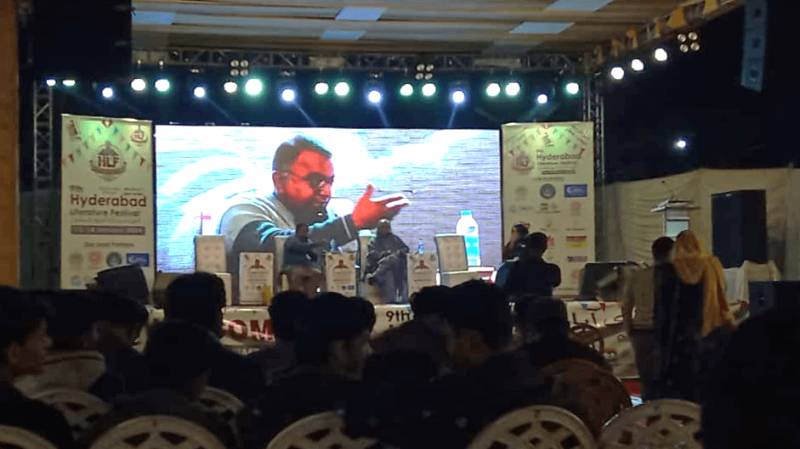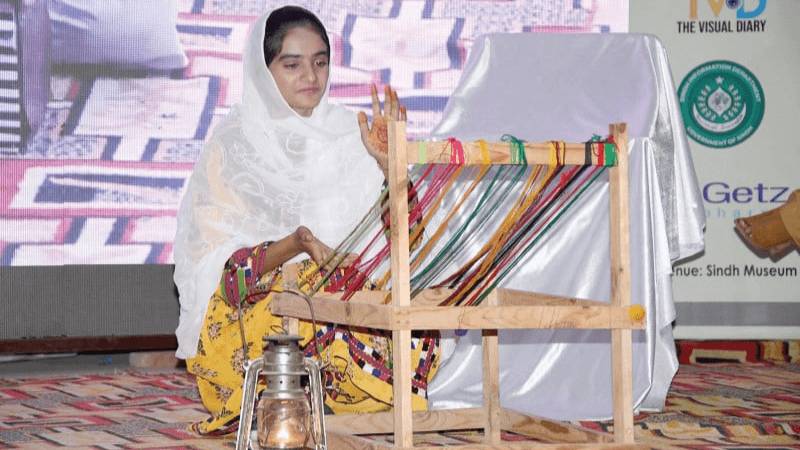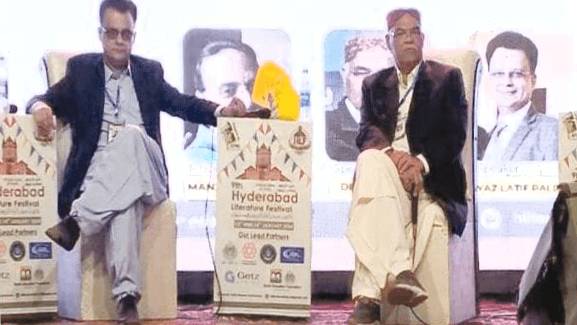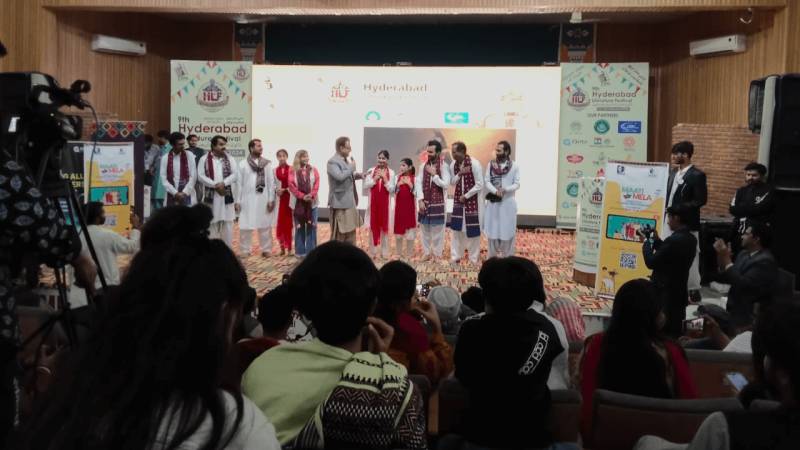
When people hold elected representatives accountable through elections, it will help bring about real change in our country.
This was stated by speakers during the two-day Hyderabad Literature Festival, which was held in Hyderabad over the weekend.
Caretaker Sindh Minister for Information Syed Muhammad Ahmed Shah inaugurated the ninth edition of the two-day literature festival at the Sindh Museum in Hyderabad on Saturday.
Renowned educationist Mehtab Akber Rashdi, Sindh Culture Department Director General Munawar Ali Mahesar, Information Director General Saleem Khan, and other notables were also present on the occasion. The minister toured various stalls set up at the Sindh Museum and announced plans to organise a Pakistan Literature Festival at the same venue in March.
During the two-day event, topics related to climate change, politics, the history of Sindh, poetry, novels and performing arts of Sindh remained the centre of discussion.

Public role in fostering democracy
Across different sessions on both days of the festival, speakers underscored the role of the public in ensuring long-lasting democracy in the country.
Speakers highlighted that the public should prudently and judiciously use their votes instead of simply casting them on the basis of past relationships, sympathies or other considerations and associations.
Dr Inam Sheikh said nepotism has seriously harmed Pakistani democracy and politics, adding that if the public holds elected representatives to account, it could help bring real change in our country.
Khel Das Kohistani said there were no political differences among the Hindu residents of Sindh. He added that propaganda has been created that lower caste Hindus have been ignored to drive a wedge between the Hindu community.
He further said that tickets will be distributed amongst candidates by political parties after scrutiny.
Some speakers observed that parliamentary politics in Sindh has become a 'social club' for feudal lords over the past 75 years.
Nationalist leaders could not change this political landscape alone. However, they still hoped that the parliamentary politics of the nationalists would gain ground.
Climate change
On the first day of the event, the issue of climate change and its impacts on the province were discussed.
Moderator Javed Soz mentioned that it was a subject of extreme concern, but the government, as well as non-governmental organisations in the country, were not as serious about the issue.
"We need to pay serious attention to this issue," he said.
Architect and climate change activist Tariq Alexander Qaiser said that Sindh faces a shortage of potable water. In many areas, he said the underground water was brackish and unfit for human consumption.
He maintained that the Indus River had been contaminated and polluted while the Indus delta was fast vanishing. He noted with concern that the people living in the Indus Delta areas were impoverished and thus unable to change their circumstances independently.
The delta's survival was critical for the environment, he added.
Environmental activist Nasir Panhwar said urban settlements have sprung up across the province without any planning as no master plan is available.
He added that these settlements had blocked natural waterways, causing massive destruction during storms and heavy rains, especially in urban areas. He said the temperature has consistently been rising every year while agricultural lands have been converted into housing schemes.
Sheikh Ayaz's poetry highlighted
During the event, the works of the illustrious Sindhi poet Sheikh Ayaz were discussed by eminent public speaker, writer and politician Ayaz Latif Palijo.
Addressing a large gathering, mostly comprised of the youth at the Mumtaz Mirza Auditorium in the Sindh Museum, Palijo said that Sheikh Ayaz spread the message of love, courage, and dedication.

He observed that Sheikh Ayaz projected the beauty of Sindh through his poetry.
The literature produced by Sheikh Ayaz can guide today's youth to glory.
Noted novelists and writers from Punjab unveiled hidden aspects of Punjabi poetry.
Yaseen Junejo, who translated Bashir's Urdu novels into Sindhi, also joined him at the session.
Theatre and dance performance
Murk — a group of teenagers and youth led by Dr Asif Memon and his wife — performed a play underlining the issues faced by women in different segments of life.
They projected a message on gender equality and its impact on society.

Asfandyar Khan Khattak, who hails from Attock, along with Afsheen, danced to Sindhi cultural songs and enthralled the audience, which had thronged to the Sindh Museum.
The event concluded with a concert featuring Faheem Allan Faqeer, Abbas Faqeer, Haresh Kumar, Balaj Hyder, Waqar Mallah and other prominent musicians of Sindh.
They were applauded by the massive crowd on Sunday night for singing poems by noted Sindhi poets.
The event ended with appreciation awards distributed amongst collaborating partners, including the Sindh Education Foundation and United Bank Limited, among others.

